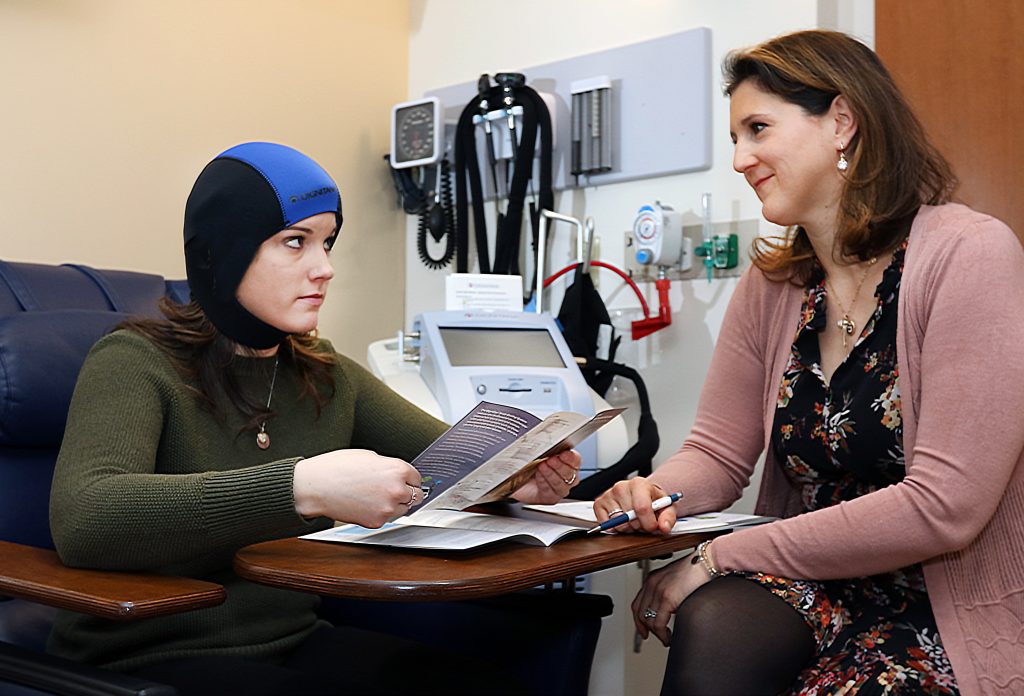Cancer
3D Printed Prosthetic Breast Grant Awarded to UConn Health
The Connecticut Breast Health Initiative has awarded a $50,000 grant to the Biomedical Engineering Department at UConn Health. The grant announced during Breast Cancer Awareness month is the largest of three to be awarded. It will be used to fund its Personalized 3D Printed Breast Forms Project, which will create personalized 3D breast forms for […]
October 21, 2020 | Jennifer Walker
Genetic Testing for Breast Cancer Reveals Rare Disorder
An odd lump on Elizabeth Cowles Johnston’s breast prompted a Friday morning call to her primary care physician Rebecca Andrews at UConn Health. Dr. Andrews quickly fit her in, and upon checking the lump sent her to Dr. Alex Merkulov, Section Head of Women’s Imaging at the Beekley Imaging Center at UConn Health for a […]
October 15, 2020 | Jennifer Walker
A United Fight Against Brain and Spinal Tumors
UConn Health, in collaboration with The Jackson Laboratory for Genomic Medicine, establishes a brain and spinal tumor board to enhance its unique position to provide precision treatment.
August 19, 2020 | Jennifer Walker
Taking More From Cancer Than It Takes From Me
Paige Dunion was inspired by the story of Marisa Dolce, the first patient at UConn Health to use the Dignicap® to preserve her hair while she was going through chemotherapy. Little did she think that a month later she would be diagnosed with breast cancer and faced with the prospect of losing her hair. After […]
March 11, 2020 | Jennifer Walker
Common Steroid Could Soften Up Tumors for Chemo
A drug used to alleviate side effects of cancer treatment may also make the treatment more successful if given beforehand, researchers say.
July 16, 2019 | Jennifer Walker
Dental Researchers Get at Root Causes of Cancer Patients’ Mouth Sores
Oral mucositis, a common side effect of chemotherapy, is associated with detrimental changes in the oral microbiome, says new School of Dental Medicine research.
April 25, 2019 | Jennifer Walker
New Technology Designed to Reduce Mortality Rates in Cancer Patients
A pair of Ph.D. students developed a technology that takes a patient’s tumor cells and grows them outside of the body to test different cancer treatments.
April 10, 2019 | Anna Zarra Aldrich '20 (CLAS), Office of the Vice President for Research
Curators Versus Cancer
A special team of medical literature experts are on the hunt for cancer's kryptonite, one mutation at a time.
November 27, 2018 | Jennifer Walker
Stopping the Resistance of Cancer Cells to Treatment
UConn researchers have discovered molecules that could make cancer cells more vulnerable to chemotherapy.
September 24, 2018 | Jennifer Walker
Ovarian Cancer Cells Hoard Iron to Fuel Growth
Researchers at UConn Health have found that iron may be playing a critical role in increased fatty acid synthesis in cancer.
August 15, 2018 | Jennifer Walker









